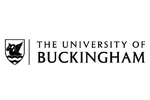

| The award | How you will study | Study duration | Course start | Domestic course fees | International course fees |
|---|---|---|---|---|---|
| BSc | Full-time | 2 years | September, January | find out | find out |
A BSc Computing degree looks at the computing and communications technologies lie at the heart of modern society. They include hardware, software, networks, tools, telecommunications equipment and required standards that provide the technological framework on which the delivery of information services is based. The IT industry is reporting a widening gap in software skills while hard technology is developing and diversifying fast.
The overall aim of this intensive programme is to enable all students to develop their potential so that they can apply what they have learnt to deal with computational problems and develop solutions in a real-world environment. Through studying this programme, students learn how to specify, design, develop and operate efficient and innovative computer-based systems and gain up-to-date knowledge of the relevant computing technologies at an advanced level within a shorter space of time.
In the second year of your BSc Computing degree, you will choose to specialise in one of the following:
Each specialism pathway contains modules designed to ensure you develop the skills necessary to progress into employment in these areas of the Computing sector.
The content of this fast-track programme is compatible with the UK QAA subject benchmark statement for Computing and with the Framework for Higher Education Qualifications in England, Wales and Northern Ireland. The intensive nature of the programme requires motivation, commitment and above all good management of time.
A particularly important feature of the BSc Computing degree (and all BSc Computing major with minor programmes) is the individual project, which extends over the first three terms of the second year, and involves the specification, development and testing of a substantial piece of software. The project is a crucial element of the degree, counting for 45 units. In support of this, you will, for example, learn to program in C# and C++, as well as taking modules in databases, human-computer interaction, and Internet & World Wide Web technologies.
The purpose of the project is to provide you with the opportunity to obtain in-depth knowledge in a chosen area of computing or information systems, to exercise judgment in solving a major problem and to develop a working software system. You will be expected to:
Through the project, you will gain experience in:
Through the project, you will also enhance your transferable skills in autonomy, communications and time management demanded by the industry.
Full details in the Curriculum Handbook
Contact University of Buckingham to find course entry requirements.
Below are some suggested courses at other providers that you may also be interested in:
Professional LLM in Canadian Common Law LLM
Osgoode Professional Development, York University
Find out moreSocial Inequalities Master Degree
Erasmus School of Social and Behavioural Sciences (ESSB), Erasmus University Rotterdam
Find out moreUndergraduate Visiting Student Program Short Course
Columbia University, School of Professional Studies
Find out moreAdvanced Materials and Technologies for Unconventional Energy System Master Degree
Ovidius University of Constanta
Find out moreConsider a Foundation or Pathway course at University of Buckingham to prepare for your chosen course:
If you do not meet the entry requirements for this course then consider one of these courses from another institution:
Academic Foundation Year - Italian Creativity and Design
IED – Istituto Europeo di Design
Find out moreThere are 156 other courses listed from University of Buckingham. A selection of these are displayed below:
Find out more about studying in the United Kingdom